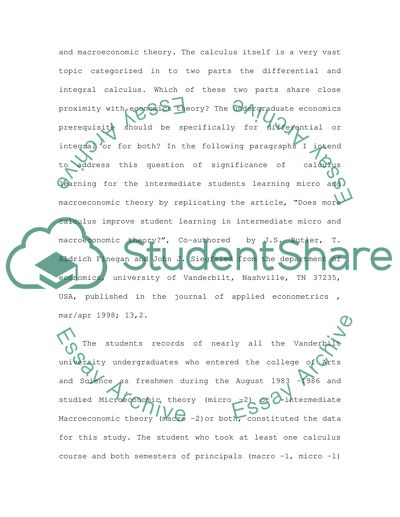Cite this document
(“Does more calculus improve student learning in intermediate micro and Essay”, n.d.)
Does more calculus improve student learning in intermediate micro and Essay. Retrieved from https://studentshare.org/miscellaneous/1510912-does-more-calculus-improve-student-learning-in-intermediate-micro-and-macroeconomic-theory
Does more calculus improve student learning in intermediate micro and Essay. Retrieved from https://studentshare.org/miscellaneous/1510912-does-more-calculus-improve-student-learning-in-intermediate-micro-and-macroeconomic-theory
(Does More Calculus Improve Student Learning in Intermediate Micro and Essay)
Does More Calculus Improve Student Learning in Intermediate Micro and Essay. https://studentshare.org/miscellaneous/1510912-does-more-calculus-improve-student-learning-in-intermediate-micro-and-macroeconomic-theory.
Does More Calculus Improve Student Learning in Intermediate Micro and Essay. https://studentshare.org/miscellaneous/1510912-does-more-calculus-improve-student-learning-in-intermediate-micro-and-macroeconomic-theory.
“Does More Calculus Improve Student Learning in Intermediate Micro and Essay”, n.d. https://studentshare.org/miscellaneous/1510912-does-more-calculus-improve-student-learning-in-intermediate-micro-and-macroeconomic-theory.


